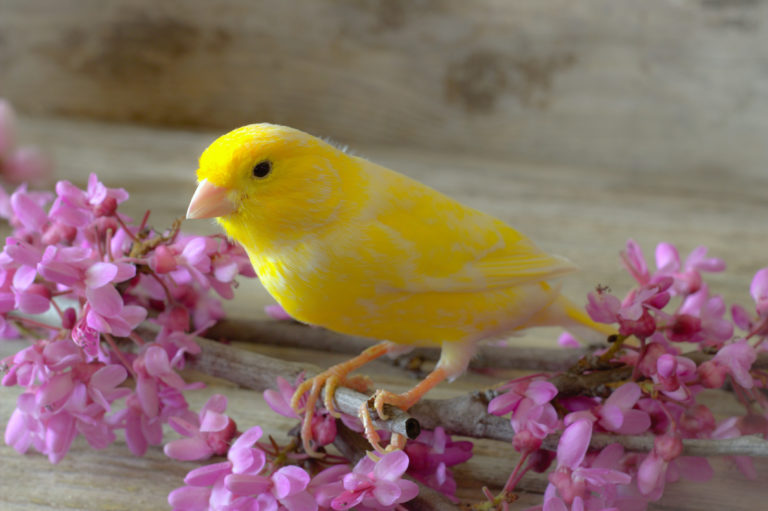Choosing the right food for your canary
Your bird’s food should consist primarily of various grains and seeds, as the shape of its beak may suggest. These can be purchased in ready-made nutritious mixes to ensure your bird receives everything it needs to stay fit and health.
Mixed feed
A mixed feed is vital in ensuring your feathered friend receives variety in its dish. The tastiest parts such as oil-rich grains, niger seeds and hemp seeds will, naturally, be eaten first, with the less tasty varieties only being eaten when hunger sets in again later. If you were to offer your bird only the delicious oily grains, you would quickly have an overweight bird that struggles to jump between perches!
Too fat?
As soon as your bird appears to be becoming large and sluggish you should sort out its diet, removing the oil-rich seeds in exchange for canary seed. However, the most effective way to help your bird lose weight is to encourage more free flight.
Lime and grit
Your canary should always have access to fresh bird sand rich in grit, or to a small bowl containing grit. These finely ground clam shells help to ensure your feathered friend can easily digest the grains it consumes. Lime, which you can give to your canary in the form of cuttlefish, is also particularly beneficial during moulting season.
Fresh water
As with any pet, it is vital to ensure your musical little friend has plenty of fresh water at all times. If you find your water is too high in chlorine, you can invest in treatment equipment at any good pet shop to help neutralise pollutants.
Herbs and fodder
Daily bunches of wild herbs can also be a great way to ensure your canary is always in tip-top shape and receiving plenty of vital vitamins. If you attach these to the cage with a clamp, your bird will happily nibble away, pick out any seeds, and carefully shell them with its beak. You can easily collect these herbs yourself, away from busy roads and common dog-walking spots – just be sure they have not been sprayed with pesticides!
Young dandelion leaves are a popular choice, as are the semi-ripe seeds. The best time to pick them is once the petals are beginning to shed but the dandelion is not yet fully open. Chickweed can also grow well in a plant pot, lasting for a long time if it is well watered and fertilised from time to time.
Sow thistle, coltsfoot, ragwort, shepherd’s purse, various grasses, ribwort and broadleaf plantain are generally well accepted.
Peeled carrots, apples and cucumber can also make your canary very happy. However, shop-bought salad should not be fed to your bird, as they can contain high levels of pollutants that can harm your pet.
Sprouted seeds
Seeds are a vital part of your bird’s diet. Seed pots are ideal for growing fast-germinating seeds such as mung beans or turnips. In order to prevent mould from growing, rinse the seed several times a day and serve within 24-36 hours of germination. Make sure that the seed is always fresh and does not have a musty or sour smell.
If your canary is treated to such a healthy, varied diet, then it will bring joy to your life for a long time with its cheerful nature and welcoming effect – because the quickest way to a canary’s heart is through its stomach!
